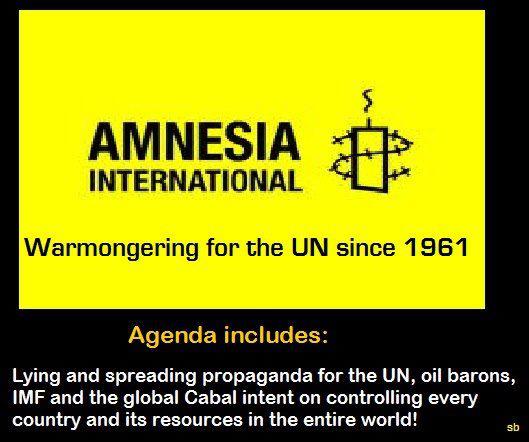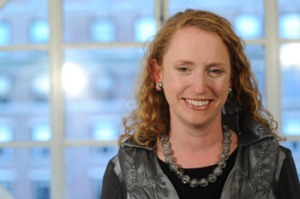Amnesty International Whitewashes Venezuelan Opposition Abuses
March 31, 2015
By Ryan Mallett-Outtrim
Amnesty International’s latest report on Venezuela calls for justice for the dozens of people killed during the unrest that shook the country a year ago, while using sleight of hand to deflect attention away from those responsible.
“The Amnesty International report documents events of February 2014 when thousands of anti-government protesters took to the streets, resulting in the death of 43 people, including eight law enforcement officials,” Amnesty said in a press release accompanying the release of the report’s executive summary.
While the full report was unavailable online at the time of writing, the executive summary unequivocally laid the blame for 2014’s violence at the feet of state security forces, but ironically chose to shy away from actually admitting how those 43 people died.
“The use of unnecessary or disproportionate force is precisely what exacerbated the wave of tragic events last year,” said Erika Guevara Rosas, Amnesty’s Americas director.
The summary levels blame at both security forces and government supporters. The latter were accused of engaging in state sanctioned human rights abuses. However, Amnesty’s allegations don’t match the facts. How did those 43 people die?
At the time of the protests, the independent news organization Venezuelanalysis.com listed a total of 40 deaths, 20 of which were deemed to have been caused by opposition barricades, or opposition violence. The deaths included people gunned down while trying to clear barricades, ambulances being blocked from hospitals by opposition groups, and a motorbike rider who was decapitated after opposition groups strung razor wire across a road. A similar death toll count by the Center for Economic and Policy Research reflected a similar consensus: while security forces were indeed responsible for a few deaths, the opposition groups were hardly peaceful. Around half the victims of the 2014 unrest were either government supporters, members of security forces or innocent bystanders.
While condemning the government for supposedly cracking down on freedom, the report shied away from any criticism of the opposition’s intentional restriction of movement through the use of barricades, widespread intimidation and attacks on government supporters, and repeated attacks on journalists ranging from state media workers and community radio stations to international media. For example, in March 2014, a mob of anti-government protesters beat journalists working for organizations such as Reuters and AFP. One photo-journalist, Cristian Hernandez, was beaten with a lead pipe, but was rescued by state security forces.
Another journalist that witnessed the beating tweeted, “They protest for freedom of expression and against censorship, and they attack photo-journalists … for no reason? Where’s the coherence?”
Unlike that witness, Amnesty chose not to question why incidents like this took place – instead preferring to turn a blind eye to widespread human rights abuses committed by anti-government groups.
Indeed, none of this is included in Amnesty’s executive summary. teleSUR did try to contact Amnesty for clarification as to whether any of this would be included in the full report, but received no reply.
One possible explanation is that Amnesty prefers to criticize governments, rather than call out substate actors. However, this doesn’t stand up to scrutiny. On Feb. 20, 2015, Amnesty International issued a report accusing both Boko Haram and the Nigerian government of human rights abuses. Then on March 26, 2015, they accused Palestinian militants of war crimes, after also condemning Israeli forces for human rights abuses in 2014. Clearly, in many parts of the world, Amnesty is capable of critiquing both sides of a conflict – but not in Venezuela.
At first, the question of what makes Venezuela unique may seem baffling, but it all became clear after I spoke to a former Amnesty employee, who asked to remain anonymous. He explained quite simply that within Amnesty, the biggest priority isn’t human rights. It is securing funding – mostly from wealthy donors in the West.
Amnesty isn’t alone – other former NGO workers I’ve spoken to in the past have made similar comments. Some have gone as far as arguing NGOs will engage in projects or research they know is next to worthless to the people they claim to defend, so long as it produces a photo opportunity that could woo Western donors. These former workers affirmed that human rights are important to many NGOs; they just take a back seat to fund-raising.
The claim that Amnesty and other NGOs are primarily concerned with money may seem excessively cynical, but a glance at pay for those at the top of the organization shatters any rose tinted glasses. In 2011, Amnesty’s 2009 decision to hand their outgoing head Irene Khan more than more than £533,000 (around US$794,000 at current exchange rates) in a hefty severance package sparked a public outrage. The payout was worth more than four years of Khan’s salary. In late 2012, Amnesty again found itself in the spotlight after it announced plans to offshore much of its workforce from the U.K., sparking a bitter showdown with the Unite workers’ union. While management claimed the offshoring would put a higher proportion of their workforce on the ground in the countries they report on, workers accused the NGO of trying to cut costs, while failing to adequately assess the physical risks to workers. One worker told the Guardian newspaper the deal could turn out to be a “cash cow” for Amnesty.
Assuming cash speaks louder than justice, the reason why Amnesty is willing to criticize the Venezuelan government but unwilling to lift a finger against the opposition suddenly makes perfect sense. While condemning Boko Haram or Hamas is palatable to much of the Western public, criticizing Venezuela’s wealthy, Westernized opposition would be edgy at best, financial suicide at worst. On the other hand, while Venezuela’s government has plenty of supporters in Latin America, it doesn’t have many friends within the well-heeled elite of Western nations. The latter, of course, are prime targets for appeals for donations. In the competitive world of NGOs, Amnesty can’t afford to risk tarnishing its appeal to wealthy donors by accusing Venezuela’s opposition of human rights violations.
In a surprising way, this makes Amnesty an inherently ideological organization, it just doesn’t have its own ideology per se. Instead, because of its pursuit of the wealthiest donors (generally liberal Westerners), Amnesty reflects the ideology of middle and upper class Westerners. It’s staunchly vanilla liberal: willing to call out miscellaneous African militias, but unwilling to accuse an element of Venezuela’s middle class of giving birth to a violent movement. It’s willing to criticize Israeli colonialism in the name of liberal values, but allergic to revolutionary politics driven from the bottom up by the world’s poor. Amnesty doesn’t reflect the ideology of the poor and repressed, but rather of its privileged, yet guilt-stricken donors.
Unfortunately, Amnesty International’s whitewash of the right-wing opposition’s human rights abuses in Venezuela is symptomatic of a deeper crisis in the world of NGOs, where fierce competition for funding means adjusting the message to suit Western audiences — and occasionally letting human rights take a back seat.







